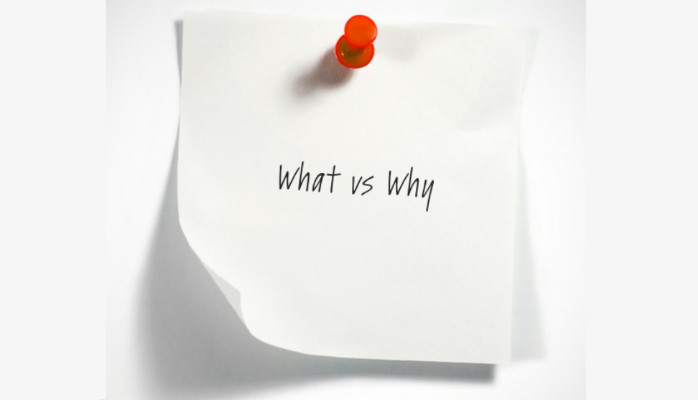
As you ponder future job interviews, you may be thinking about all of the stories that you could be telling. Most interviewers tend to rely heavily on behavioral-type interviewing questions which are ripe for story-telling. These questions call upon you to describe how you behaved in various situations. Some common examples include:
- Tell me about a time that you improved a system or a process.
- How have you overcome a setback on a project?
- Have you ever had a disagreement with your boss and how did you handle it?
The common feature of these questions is that each one requires you to tell a story to describe What you did in those specific situations. At Alliance Careers, we prepare our candidates very well for these questions. Yet, one of the things that people often overlook, is the Why behind the decisions they made in those stories. They don’t realize the Why can be just as important as the What.
What’s the big deal with the Why, you ask? The Why tells the interviewer an awful lot about your thought processes and decision-making abilities. When a company is making a strategic hire, they are every bit as concerned about your decision-making ability as anything else. Although they might only ask one question that is focused on decision-making, it’s an implied part of virtually every question that you will get asked.
In that regard, here are some important Why Questions to consider when preparing to interview
- Why did you select your college?
- Why did you select your major?
- Why did you join the military?
- Why did you select your specialty?
- Why are you leaving your current job?
- Why do you want to join the corporate sector?
- Why did you change career fields?
- Why did you volunteer for XXXX?
- Why did you get certification YYYY?
- Why do you want to work in ZZZZ industry?
These are just a few examples – the list is endless. We recommend that for every major action or decision that you have made, you consider the thought process that you used to make those decisions. That doesn’t mean that you are going to explain each and every one of them. That might stretch a 2-minute story to 10 minutes! But the point is that you focus on the major ones while still being prepared to discuss the smaller ones.
JZ
